
05 Jun Rendezvous at Red Ants Pants Music Festival
YEAR IN, YEAR OUT, THE RED ANTS PANTS MUSICAL FESTIVAL is its own sweet self, unchanging in its community feel-good and do-good vibe, no matter what acts are playing. Pasture-yoga in the mornings, cold beer in the afternoon, music at night. The landscape is wide-open space, heated blue sky of late July, dust, grit, brilliant light, with summer hanging high and suspended. Wherever you came from greener than it is in White Sulphur Springs, Montana; you are entering deeper into summer.
Last year, I had inside knowledge that two of my good friends (one a writer, the other a musician) who had never met, were, after many decades of mutual admiration, finally going to be in the same place at the same time during Red Ants Pants. That kind of thing doesn’t happen every day and I wanted to be there when it did.
Strange, perhaps, that in addition to wanting to be present at such a momentous occasion, another of my impulses should be to feed them. This same summer I’d already visited the writer, Tom McGuane and his wife Laurie, at their ranch as part of a project where I travel around the country cooking nice meals as expressions of gratitude toward my teachers and mentors. And whenever the musician, James McMurtry — a turkey hunting partner — comes to Missoula, I bring him some elk, still warm in the skillet, which he adores; he eats it all, no matter how much there is, and no matter that the stage managers are telling him it’s time for him to go out there and play.
Over the years, Tom has mentioned to me that he really loves all of James’ music, but especially “Choctaw Bingo,” and James is likewise a grateful reader of Tom’s work. Growing up son-of-Larry, James literally was surrounded by books, books overflowing their shelves like something spilled, books stacked in towering columns along the walls, James stacking books for toys the way other children played with Lincoln logs and building blocks. James has described how, on tour, all he ever does is read, look out the window at the passing landscape, then read some more.
So James knows and admires The Sporting Club, Panama, The Bushwhacked Piano, knows An Outside Chance and Some Horses, knows The Cadence of Grass and Gallatin Canyon, knows all of it.
I feel like a matchmaker. They’re going to love each other.
Concert Day. James texts Tom and Laurie and me and says he thinks he’s got everything ready for the show and has a spot of time. “You two go on ahead,” Laurie says. The musician Jimmy Buffet is often identified as being Laurie McGuane’s brother. She knows how it goes. She watches and waits as we wander back into the space and sanctuary behind the do-not-go ropes, through security and behind the big stage, where the bands’ motor homes and tractor-trailers rumble and idle, performers waiting to perform, performers resting up from having-performed.
On the backside of the speakers, the music sounds like noise now, and far away.
Across the space of the big pasture, Tom and James approach each other like congenial gunslingers: slow, in the heat, friendly. Tom, ever the gentleman, begins by paying James his respects to
Larry, with whom Tom went to school in California long ago. He asks after Larry’s health, then turns his compliments to James, saying something to the effect that he really likes what James is doing. It’s a graceful turn of phrase, I like what you are doing, sensitive to the curiously painful compliments of their professions — the accruing weight of love your work conspiring to eventually crush the recipient beneath a black overburden of self-loathing or some other kind of despair, perversely reminding the recipient — with that sincere and generous phrasing — that the artist is making a trade of the hours in one’s life, with time spent in the dreamtime of work therefore not spent in the living-of-life, but instead in the hunt for an artistic way to represent life.
And because both share awareness of and even discomfort with this paradox, they are each in some regard my heroes. It is a typically graceful and deft McGuane-ish solution — invisible, really — of getting that bullshit out of the way quickly.
Perhaps because they are so aware of this paradox — loving storytelling and unable, really, to keep themselves away from it, even as it pulls them away from hunting and fishing, time with horses, time spent out on the land, time spent reading, time simply spent — I love their appetites, their hungers.
Perhaps because of this heightened awareness of the value of time — a perception that’s sharpened further by age — they jump right in with conversation, a practice and faculty that amazes me, a listener. As if they are old friends from way back — compatriots — they start telling stories: tales of people and places, the stories unspooling there in the heat as they share with each other the coin of their realm, one of the things they value greatest. They’re just shooting the shit, and happy to be in each other’s company. There’s the smell of horses, dust red in the breeze, heat. I’ve had a couple of beers, because of that heat, and I’m listening, not note-taking — I’m trying hard to be present — but it’s going a little fast. Later I will jot a few images from memory, but in the time that passes, those notes’ meaning will escape me, as if through cracks or slats.
Antelope, fly rod. Low-lion. Julie tree-lions, stars. Golden apples. I think these are things the three of us talked about.
Some of it, I remember. Really, it was just coming scattershot. I fell into my old ways, when I’m happy, of inhabiting the emotion deeply — as I would a story — so deeply that I am more aware of the condition than of the specifics. My emotions cloud my observations and predatory journalistic capabilities, and instead I’m just standing out there in the sun, having a great time watching them enjoy meeting each other.
Antelope, pistol. Battle of the Bulge. Horse racing alongside a train.
I do remember some of the stories. James talking about fly fishing in the Florida Keys, and the guide telling James how important it is to be terribly quiet. James’ cellphone was perched on the gunwale, and right when they were sneaking up on one of their quarry, the fish’s big fin sticking up out of the shallow and utterly transparent water, James’ phone started vibrating, a veritable hand grenade, reverberating through the entire boat, and then spun off into the water, still buzzing. Go away, fish.
James telling Tom about a musician in San Francisco who had a rental car totally destroyed by a streetcar, and for some reason ended up pushing the car into the bay to hide the destruction. Another story about some old guy in his hometown of Archer City who was gutshot out on Main Street a couple of years ago. I’ve already forgotten why, but I remember the point of the story was that it wasn’t much of a reason.
I watch Tom grin and shoot the shit with the younger man. How I love what Tom is doing — still living an action-filled life (last year he went bird hunting 86 days, despite having wrecked his knee horribly the previous year), and is still writing strong; his best work yet, I think, in his seventh decade — and continuing to cultivate friendships. Younger friendships. He’s always been smart. (Avoiding the loneliness of being among the last to leave. And also helping to carry a thing forward, something intangible, something of spirit, something beyond the bookishness of, well, books.)
Finally, with the important stuff out of the way, they talk a little about what they do. They both agree that songs are harder than stories, harder than novels. They talk about the great singer-songwriter John Prine. The great ones, James says, seem able to make anything work. He calls Prine “a master of the non sequitur. ‘Charley bought some popcorn, Billy bought a beer?’” he says, eyebrows rising wildly. “It doesn’t mean anything, but it’s perfect.”
My favorite song of his? Hard to say. “Levelland,” “No More Buffalo,” “Can’t Make it Here Any More”? Maybe, probably, “Holiday”: “Cause there’s something inside us that won’t let us be / stalks through our days til it’s too dark to see / And it’s damn near as deadly as Texans on ice.”
Grasshoppers are springing up and clacking away. Time is beginning to move — is stirring, after a sweet strange period of stillness.
Tom says he wants to get together for more time next time, go fishing. He asks where James goes next, and James says he’s not sure. Denver, and Idaho, and some other places, but he’s having to think hard. He is still pretty much just thinking about today. “All I know is to drive on,” he says. He makes a forward gesture with his hand. “That’s what I do. Drive on.”
One of the stage managers is approaching, like the Grim Reaper despite the beauty of the day. We can all see him coming from a long way off. More grasshoppers, flaring around his ankles like sparks. The horses, tied to their trailers, tucked in tight to the narrow shadow of the trucks, watch quietly, swish their tails.
The show is great, high-energy rock and roll, an hour in the brutal heat. A hell of a tough way to make living, I would think, the older one gets. It’s different, filling one hour instead of two. There’s less pacing, way less rest. No patter, just driving rock. I wonder if one hour is harder than two or three.
Tom heads back after James’ show. And after the show, James goes for a horseback ride. A friend has brought a lovely, sweet bay mare down from Big Sky for him to ride, and it looks like a cliché except it’s not. He rides off into the prairie, into the redding dusk, unwinding from the show.
Later, when the sun’s almost down and the horse has been trailered away, we head over to where I’m camping, a lengthy trek that is punctuated by almost innumerable interruptions in which every passing festival-goer stops to tell James how much they loved the show, how much they love the work, reaffirming yet also burying him with their praise, which he accepts graciously, even as the meat awaits.
“Got any red wine?” James asks when we finally get there, and I do.
We cook the elk in a cast iron skillet with morels I found in the Yaak, cut it up with knife and fork and eat it straight from the skillet while it’s still hot, like hounds, no need to fool with plates.
We say our goodbyes then — his tour bus is set to pull out whenever he finishes the elk — and he walks off back into the dark, leaving Montana. Tom’s already halfway home, I think, maybe even there already — maybe getting ready for bed — and I know who I think got the better end of the deal when the fates decreed that one storyteller should be a writer while another a musician. It makes me feel both rich and guilty. I look down at the skillet — I’d like there to be one little bite left — but it’s completely empty. He’s gone, it’s gone, driving on. Somehow it reminds me of a song and a story both.
- James McMurtry on stage playing his own brand of rock and roll.
- One weekend a year this desolate cow pasture becomes a village teeming with Red Ants Pants Festivalers
- Cruz Contreras of The Black Lillies, Frank Bronson of The Bus Driver Tour and Jonathan Henley on harmonica.
- Jason Isbell rocks the twilight crowd at Red Ants.
- Locals mingle with festival revelers from all over Montana, adding to the event’s family atmosphere.
- Musician James McMurtry trades stories with Tom McGuane before he goes on stage.
- James McMurtry looks out at the crowd from the stage.
- Cool down: Without a stick of shade for miles, a Red Ants Pants volunteer spritzes the crowd with water.
- Festival goers dancing in the dust and high heat of Montana summer.
- “Camp Livingston” on the Bus Driver Tour bus.
- Solo yoga at the campground.
- A meeting of the minds: Writer Rick Bass (right) listens to friends, author Tom McGuane (center) and musician James McMurtry (left) as they meet for the first time



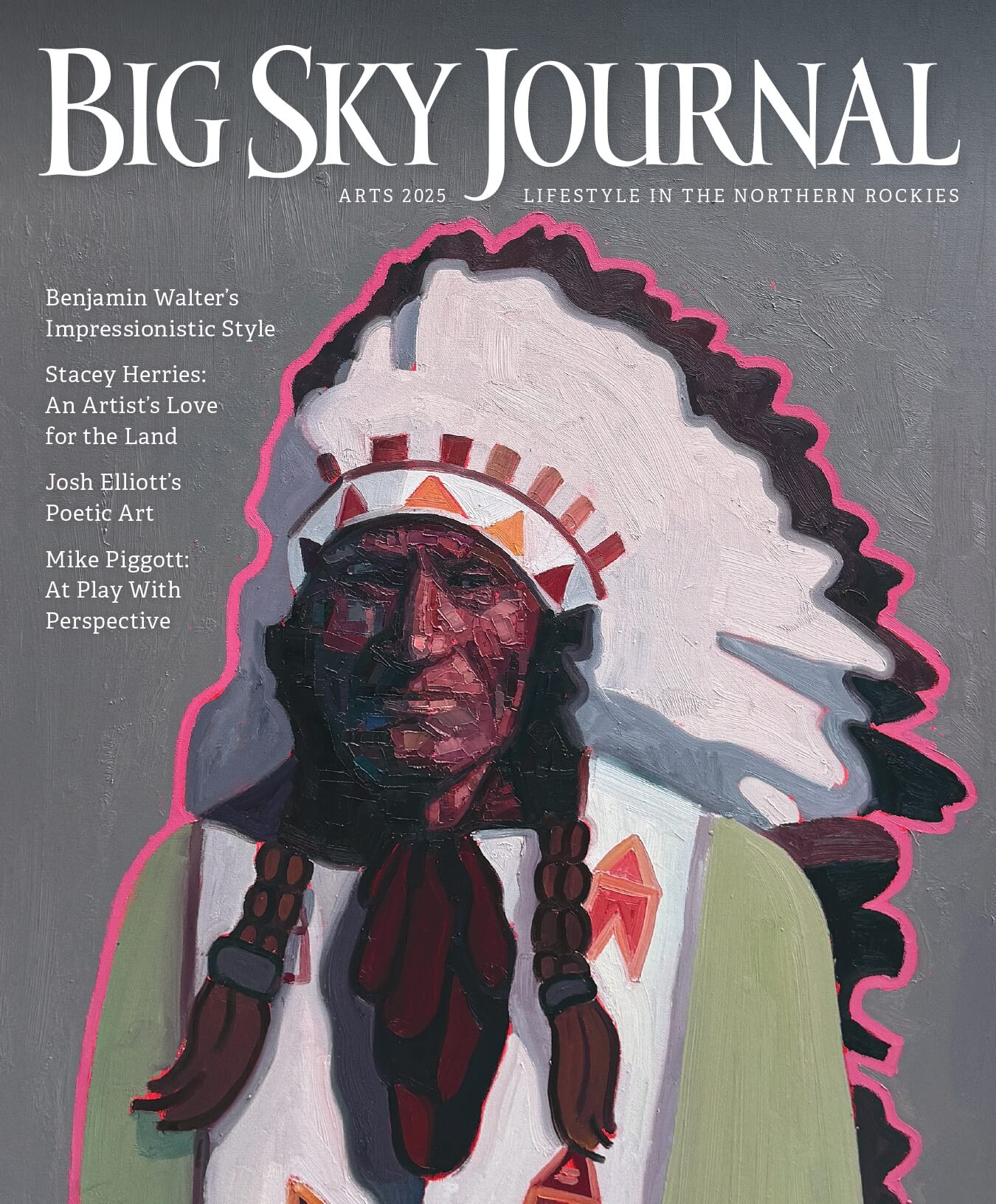
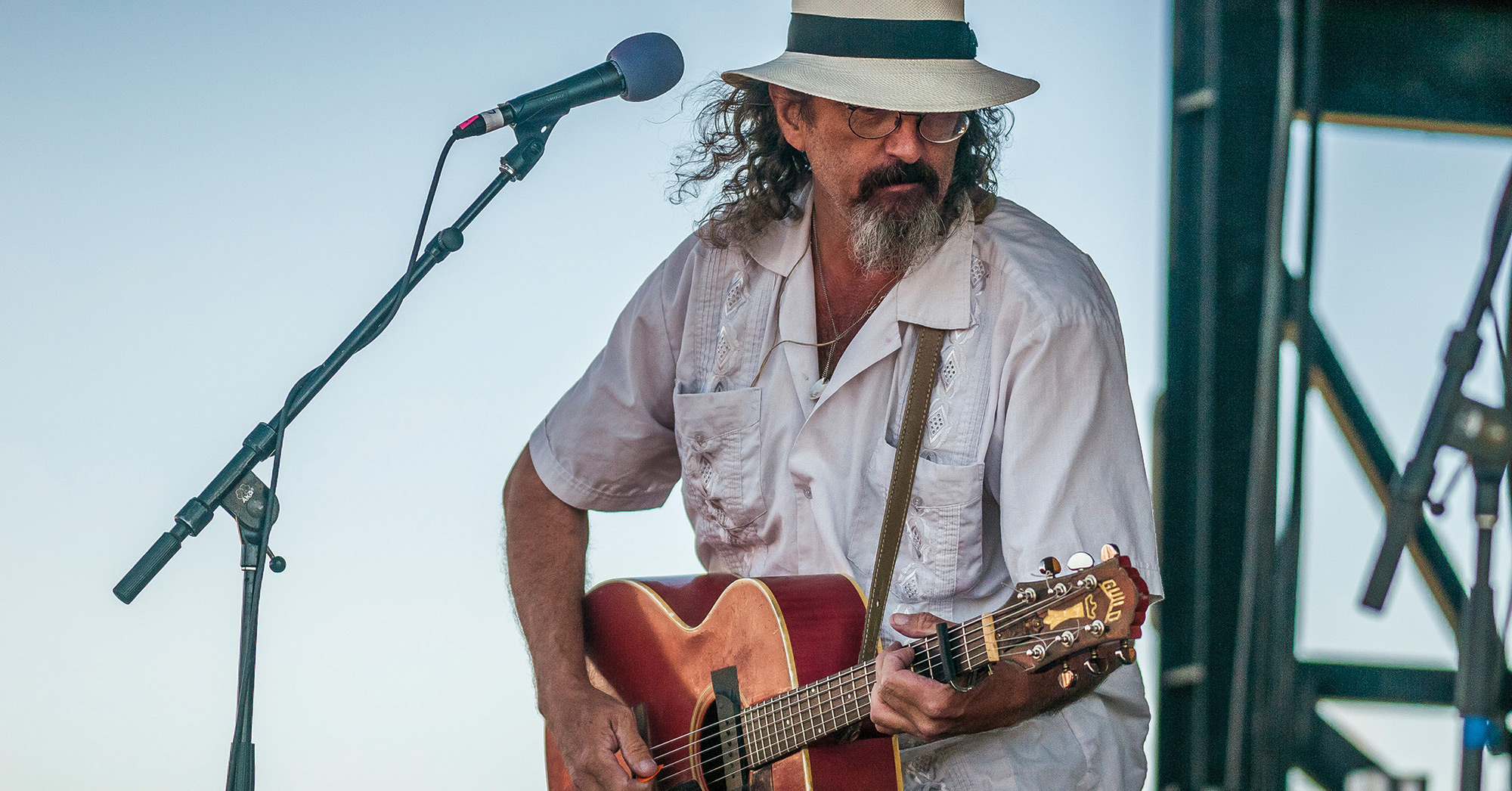
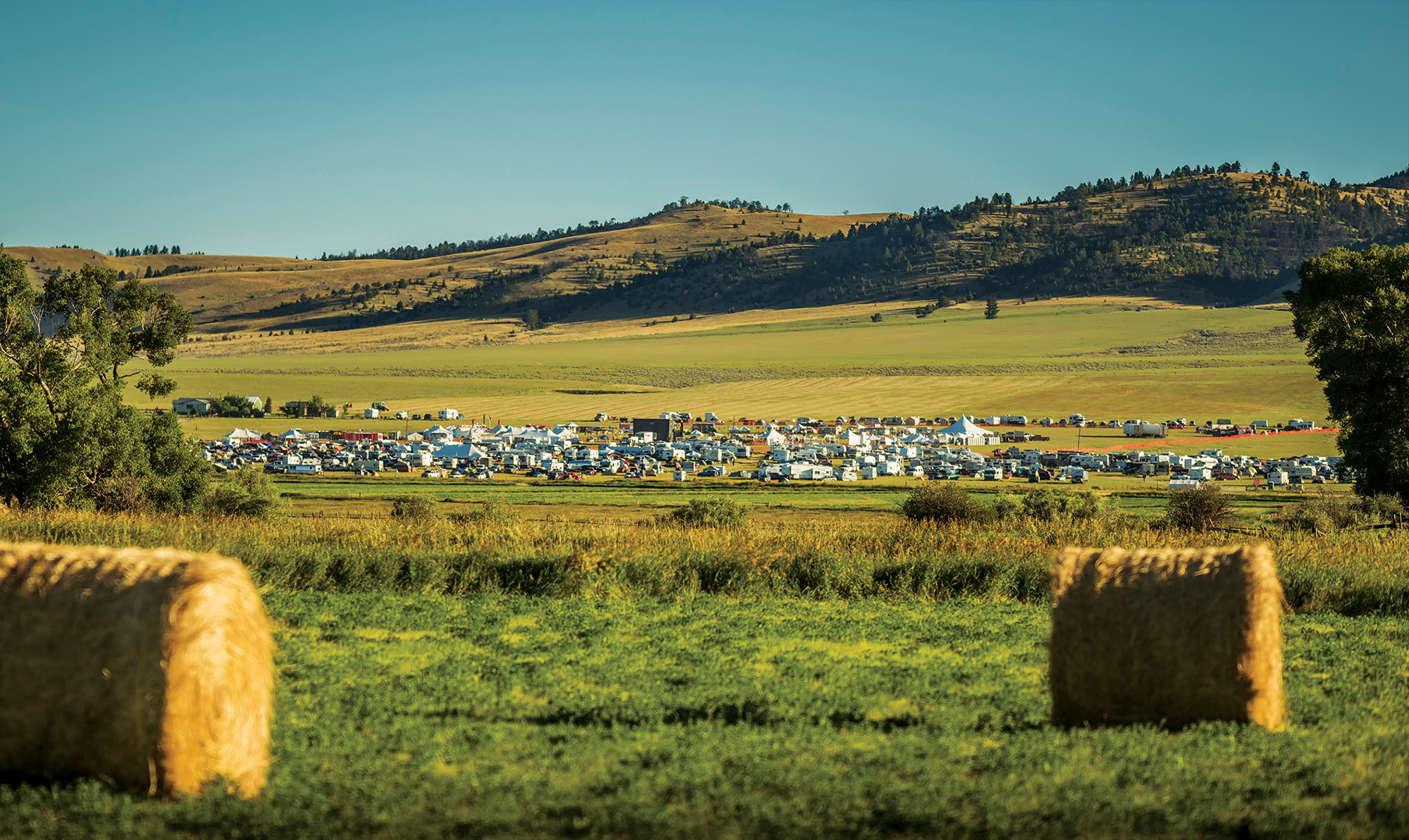
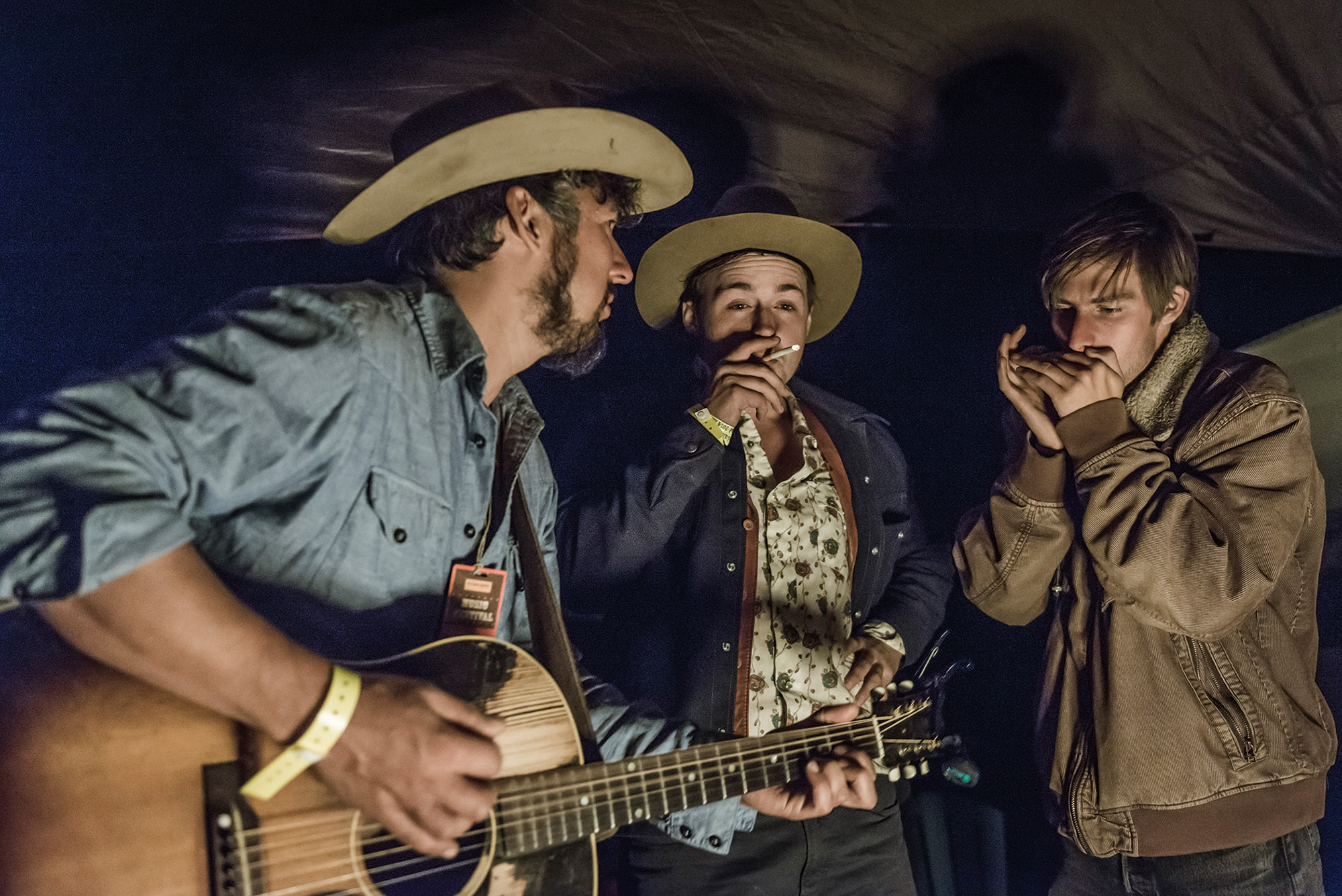
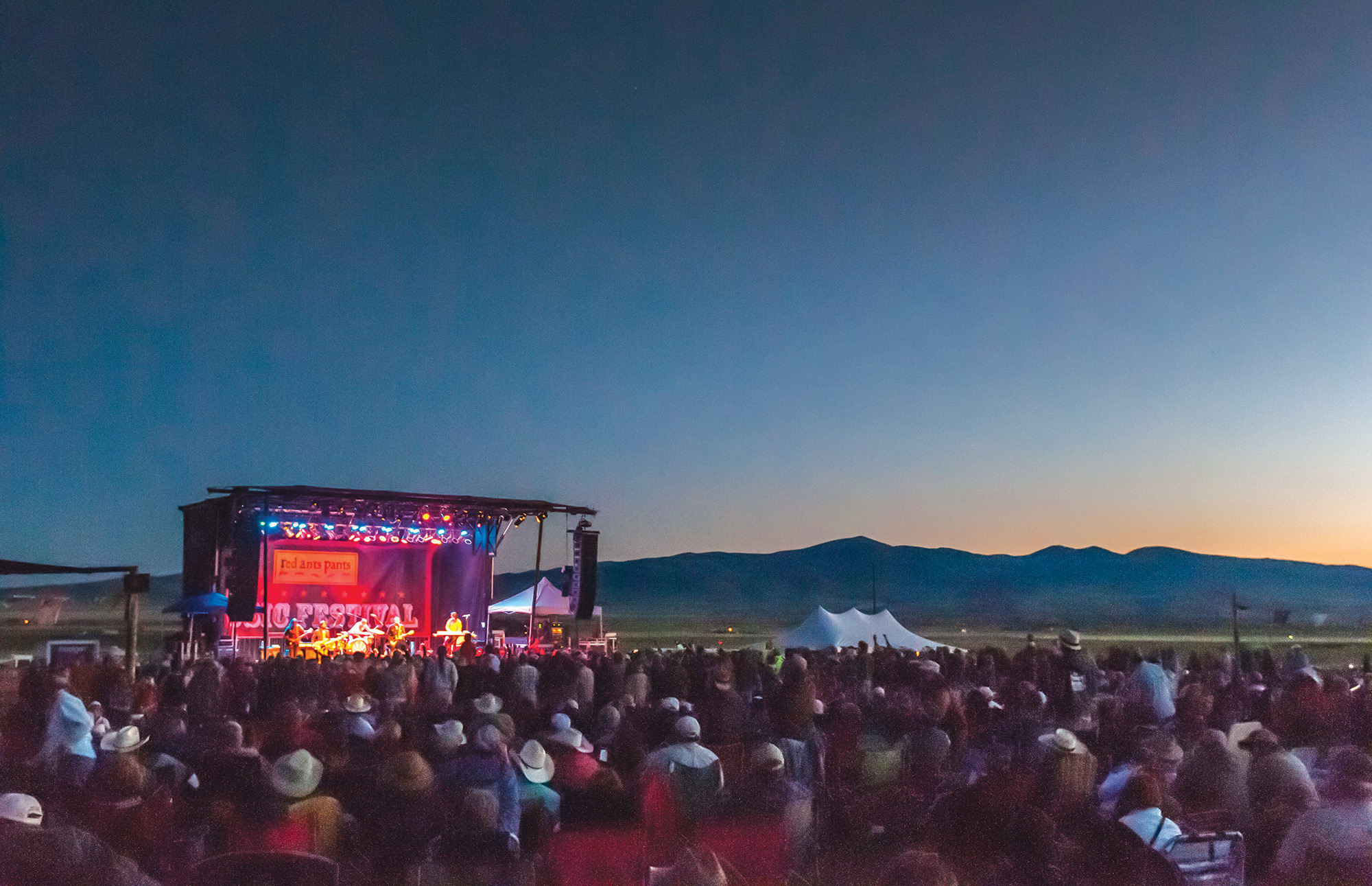
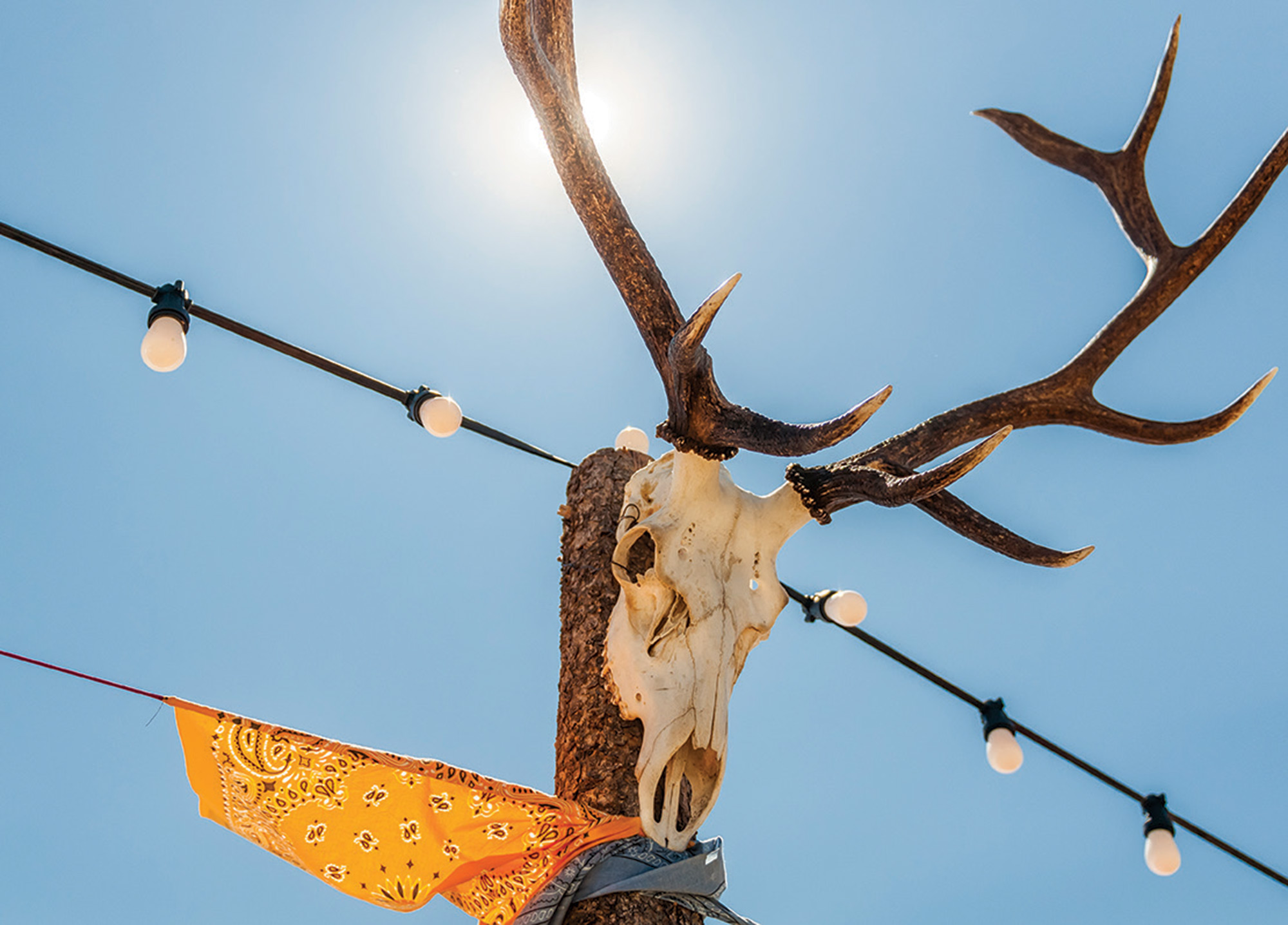
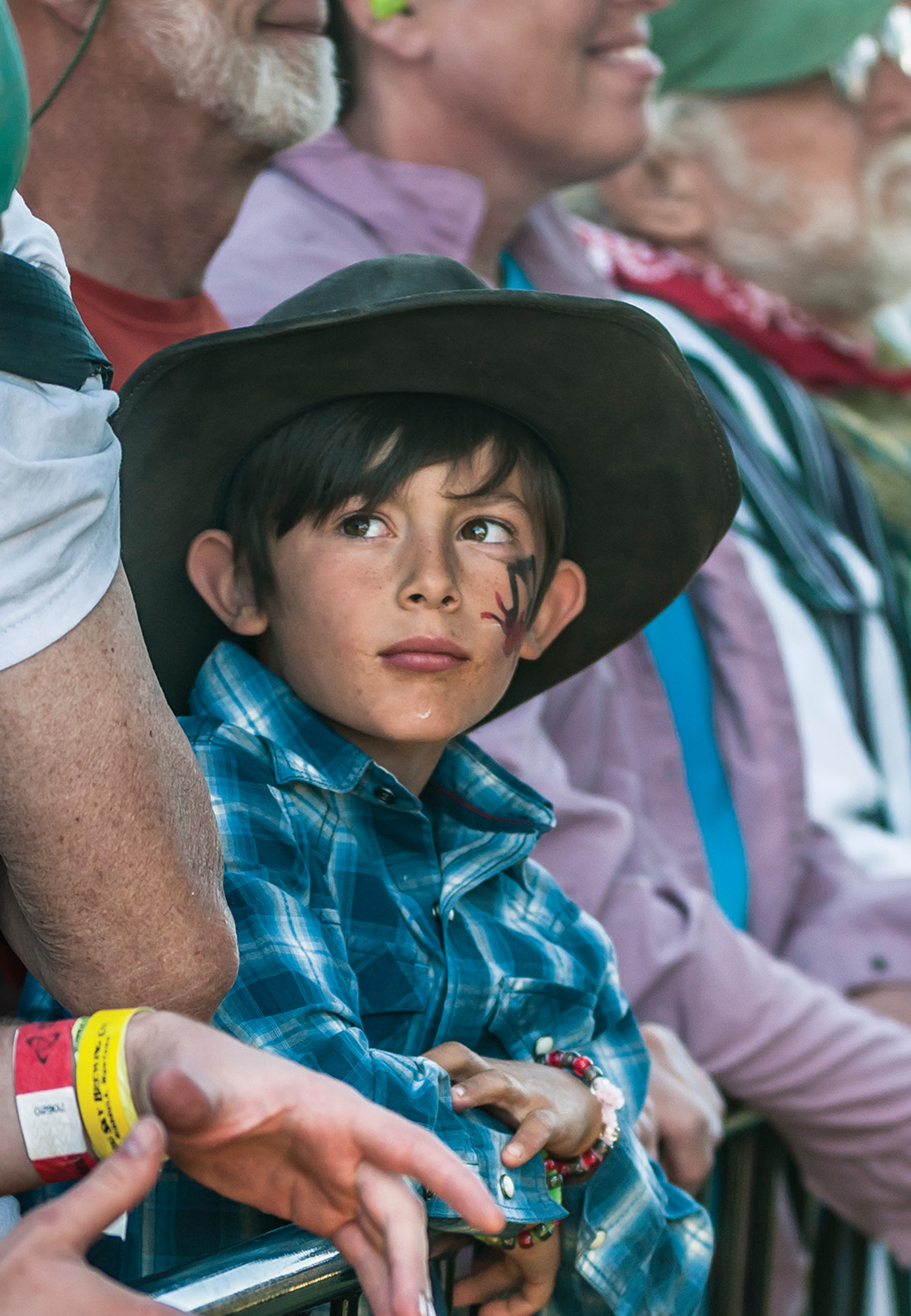

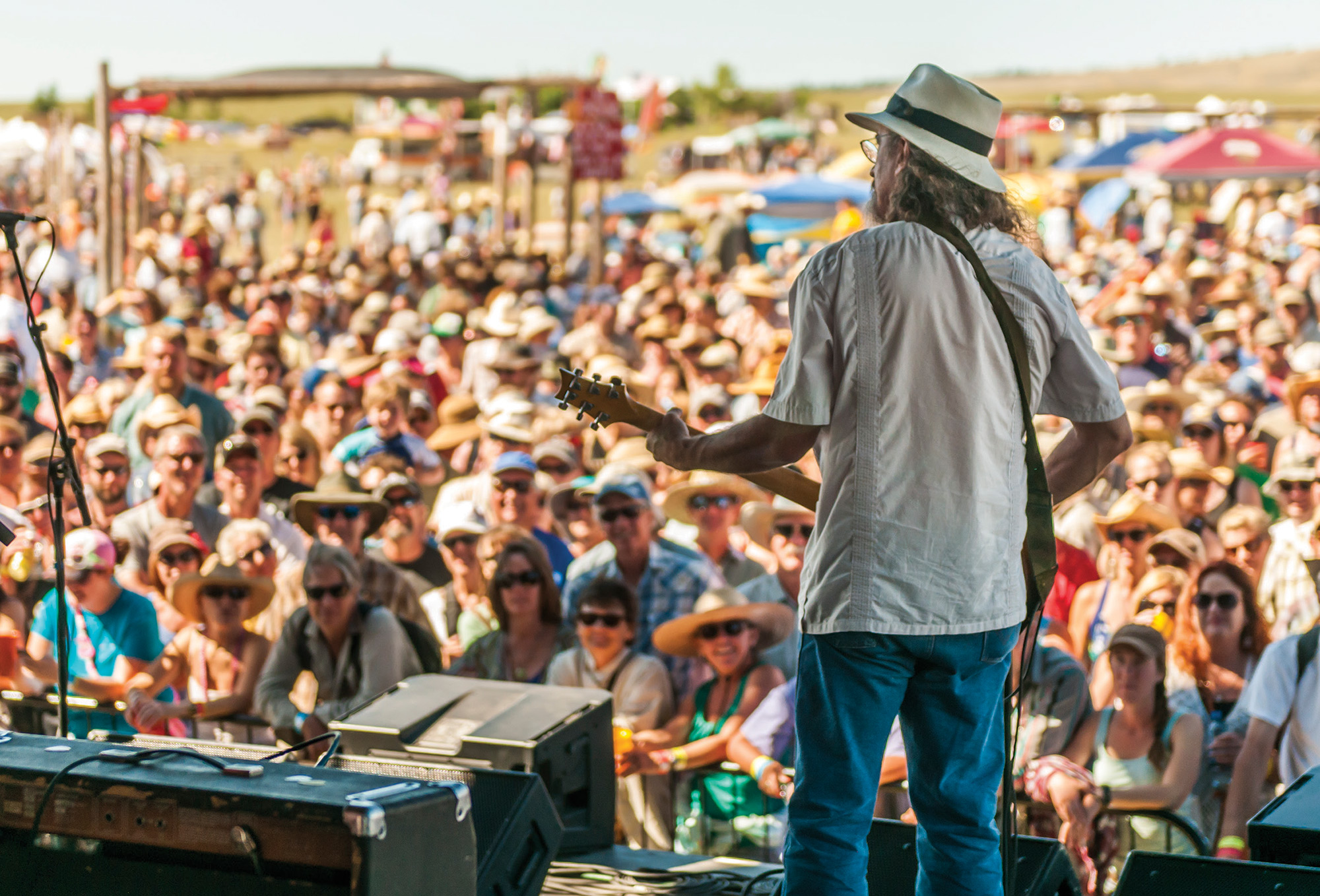
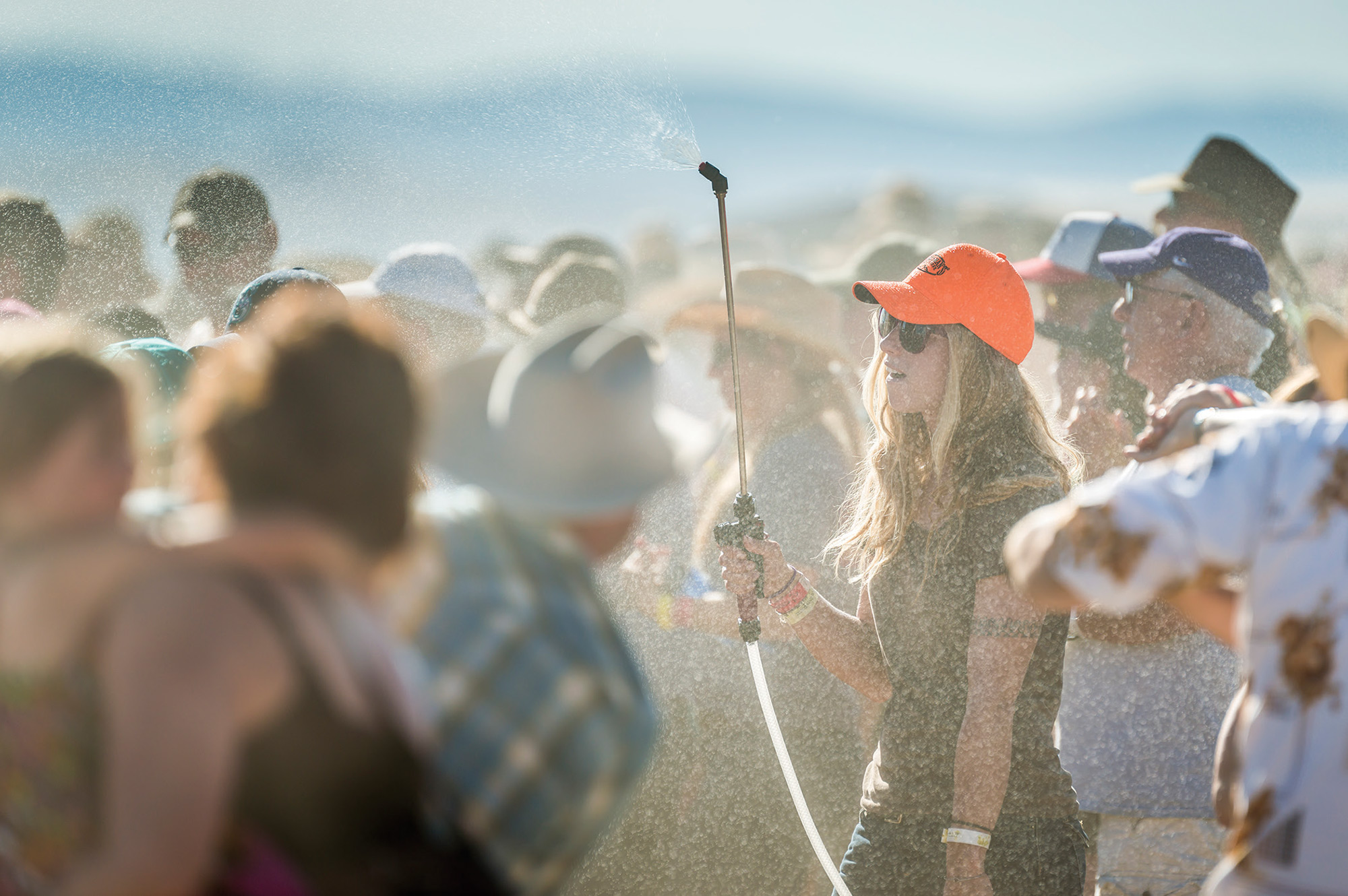

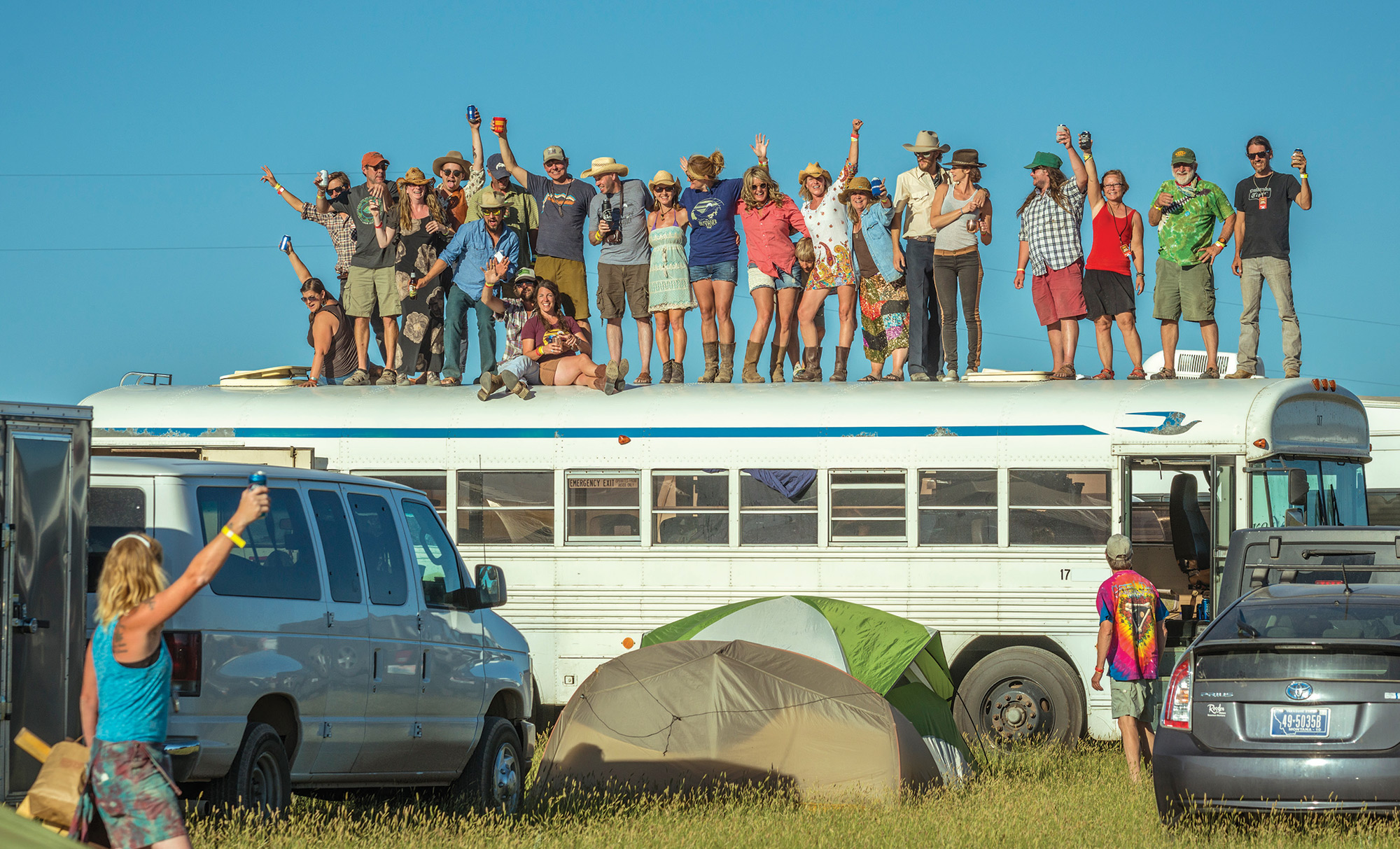

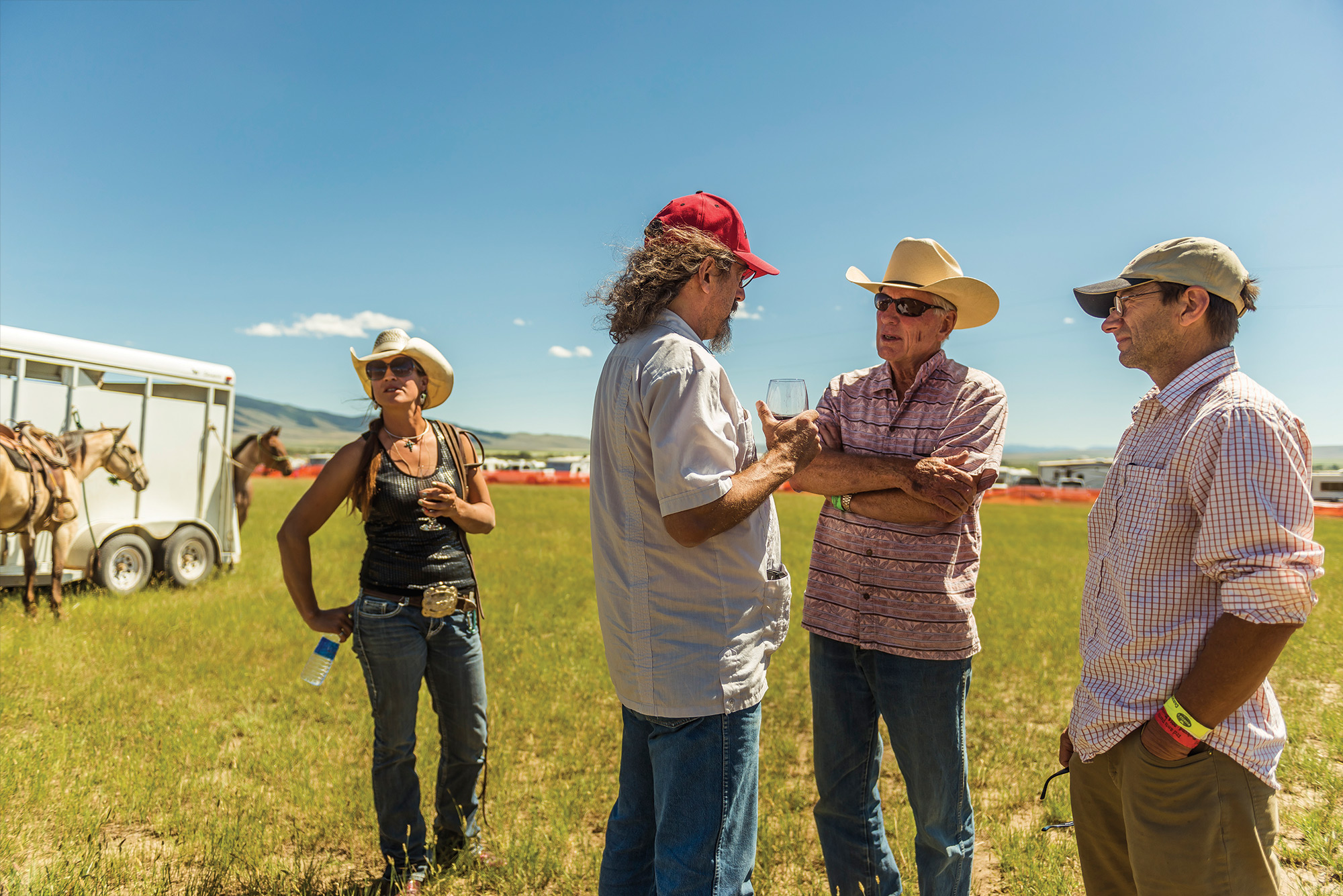
No Comments